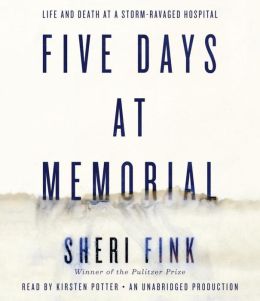ICOSS, University of Sheffield
219 Portobello, Sheffield, S1 4DP
This seminar series will explore some of the key methodological challenges that the social sciences face in addressing research priorities in the 21st Century. Some of these areas involve continuity in topic and approach, whereas others involve new characteristics and aspects of social life.
The seminars will involve researchers discussing the kinds of research questions they are beginning to ask and looking at the methodological approaches and challenges that these questions pose. We will explore this in four seminars that relate to contemporary social issues, covering:
- Wellbeing and disadvantage
- Diversity and community
- Vulnerabilities and risks
- The relationship between social and digital worlds.
Following these four seminars, there will be a roundtable event, where there will be broad discussion about the methodological challenges and how the research community might address these.
 Read more about the seminars.Seminar dates:
Read more about the seminars.Seminar dates:• Tuesday 20 May 2014
• Monday 30 June 2014
• Wednesday 16 July 2014
• Wednesday 15 October 2014
Final roundtable event:• Wednesday 26 November 2014
How to participate:There are a number of ways in which you can participate in the series and join the conversation:
* All submissions will be subject to peer review.1. Submit an abstract to present a 20-minute paper at one of the four seminarsWe welcome abstracts for papers related to one of the 4 seminar themes. Based on ESRC priority areas, these themes are purposefully broad and papers may be based on work in progress, methodological or empirical issues you are currently grappling with as well as thoughts on future research potential and papers relating to completed projects. We welcome paper presentations from researchers of all career stages.
If you would like to present a paper please submit a title and abstract of no more than 250 words by completing the online abstract submission form(link)/by emailing your abstract to
http://methodologicalchallenges.group.shef.ac.uk/ (please indicate which seminar you would like to present at and state whether you will be presenting in person or via weblink) three abstracts will be selected for each seminar.
The deadline for abstracts is 14th April 2014. 2. Submit a written ‘think piece’ for dissemination on the seminar series’ websiteWe invite 400 word peer reviewed ‘think pieces’ for dissemination on the website. These could include (but are not limited to): reflections upon a particular research issue, experience or dilemma; thoughts or opinions on a particular issue affecting today’s research community; an annotated extract from your data or field diary. Think pieces may or may not relate to the themes of the seminars. Think pieces can be emailed to
http://methodologicalchallenges.group.shef.ac.uk/ for peer review from 14
th April.
Think pieces will be accepted throughout the duration of the series.3. Submit a poster to be displayed on the accompanying websiteWe invite posters for dissemination on the website. Posters should be in PDF format… and could be based on a particular project, method, idea or experience. Posters may or may not relate to the themes of the 4 seminars. If you would like to submit a poster please submit an expression of interest using the abstract submission form
http://methodologicalchallenges.group.shef.ac.uk/.
Posters will be accepted throughout the duration of the series.4. Attend a seminar and/or the roundtable event either in person or virtuallyYou are very welcome to attend the seminars and round table event and join in the discussion. You can do this in person by coming along to an event here in Sheffield or by joining us via web link. However you wish to attend, please register first by contacting Jayne Parkin,
j.e.parkin AT sheffield.ac.uk.
If you wish to attend the seminar series in person, you can find directions to ICOSS
here. If you would prefer to participate virtually, join us here at
http://methodologicalchallenges.group.shef.ac.uk/ and submit your questions via Twitter, using the hashtag: #socmethods. You can also follow us at: @SocMethods
* This seminar series is funded by The Faculty of Social Sciences at the University of Sheffield, with additional support and guidance from NatCen Learning.* Seminar series organiser: Dr Bridgette Wessels.Best wishes,
Jenny Smith
Marketing Officer
Department of Politics / Department of Sociological Studies
The University of Sheffield
Elmfield, Northumberland Road
Sheffield, S10 2TU.







